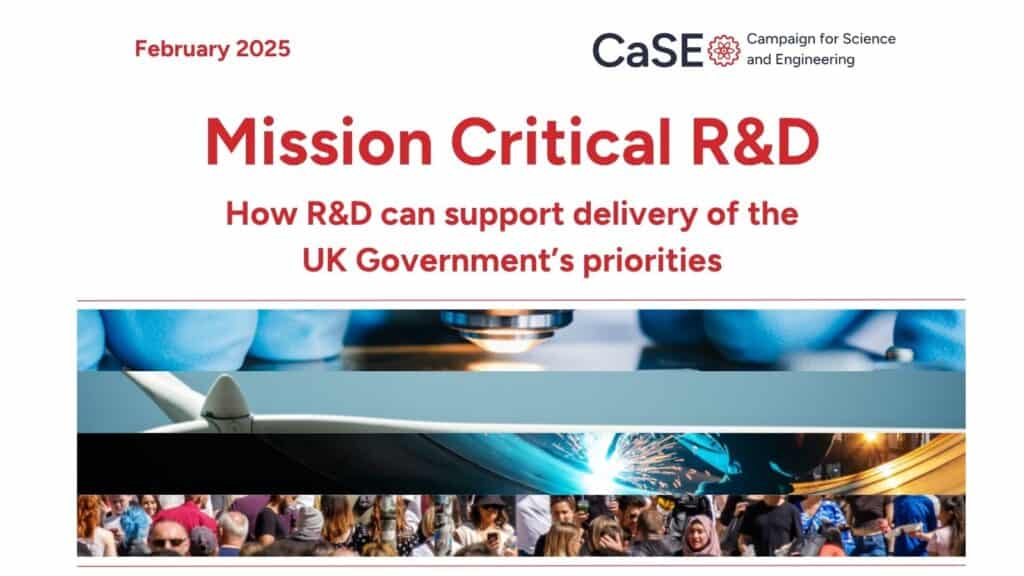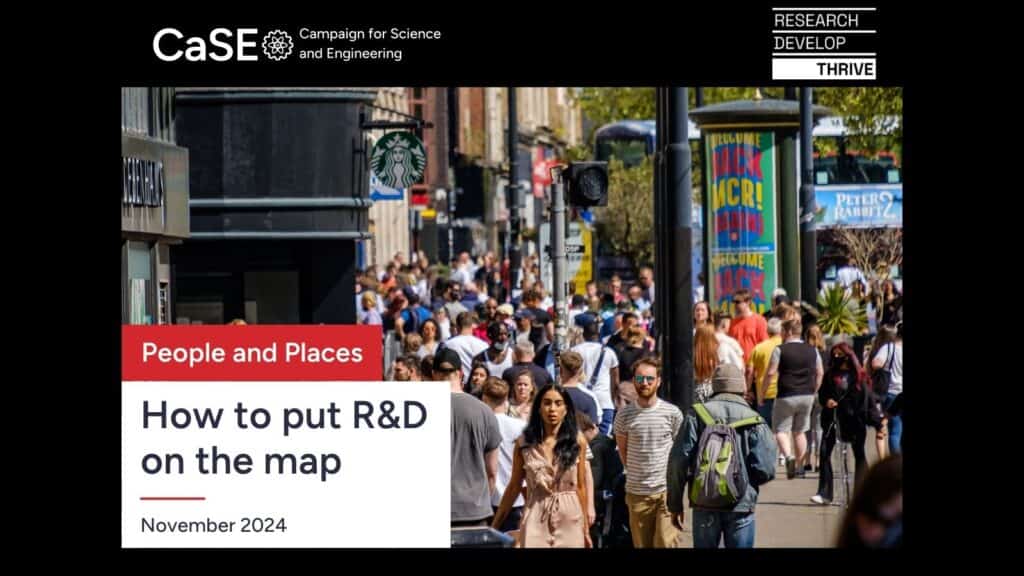The independent report, co-authored by Professor Sir Adrian Smith and CaSE Chair Professor Graeme Reid, sets out new opportunities to boost international partnerships on research and innovation
CaSE responds to new report on international collaboration for UK science
05 Nov 2019
CaSE has today welcomed the new report ‘Changes and choices: advice on future frameworks for international collaboration on research and innovation’, and called on the next Government to make the UK a partner of choice for international collaborations.
Commenting on the report, CaSE Executive Director Dr Sarah Main said:
“Collaboration is the fuel of scientific discovery and innovation, and it is done across borders. Therefore it is vital that international collaborations are sustained and grown to ensure the UK remains a partner of choice for research and innovation, including with the EU.
I welcome the Government’s attention on this subject and the depth of consideration given to it in the report.
The next Government must ensure that, whatever the outcome of the Brexit process, the UK remains a partner of choice for international collaborations, including in EU research programmes.”
Earlier this year CaSE hosted a roundtable discussion giving organisational members the opportunity to inform the report.
CaSE’s call on international collaboration
Ahead of the upcoming election CaSE has called on the new government to make the UK a partner of choice for international collaboration, including with the EU
UK research and innovation has been greatly supported by global collaborations, including EU funding programmes. To date, the UK has secured €6bn of Horizon 2020 funding since the inception of the programme in 2014. The UK is the second largest recipient of funding, and most UK universities receive between 15-35% of their competitive funding from Europe.
The evidence shows that international collaboration makes science stronger and leads to higher quality research. The best route to that collaboration in Europe is full participation in EU research programmes. Therefore, the UK must secure full participation in Horizon Europe when it begins in 2021. Being part of Horizon Europe has intangible benefits for UK science, which are as important, if not more important, than the financial benefits. These intangible benefits should be protected as far as possible, whatever the outcome of the Brexit process.

Read CaSE's written response to the consultation
Read moreRelated press

A new report sets out evidence, including public opinion polling, on the integral role of R&D in driving progress on the UK Government’s missions.

New findings published today by CaSE show that focussing on partnerships, pride, and pay-offs are the most effective way to connect with public audiences when talking about global-facing R&D.

Strengthening R&D’s local identity offers a huge opportunity to connect with broader public audiences, according to a new report from CaSE.

New public attitudes polling from the Campaign for Science and Engineering (CaSE) has found that a majority (52%) of the public want UK universities to recruit highly talented people from around the world, even if it means higher immigration to the UK.